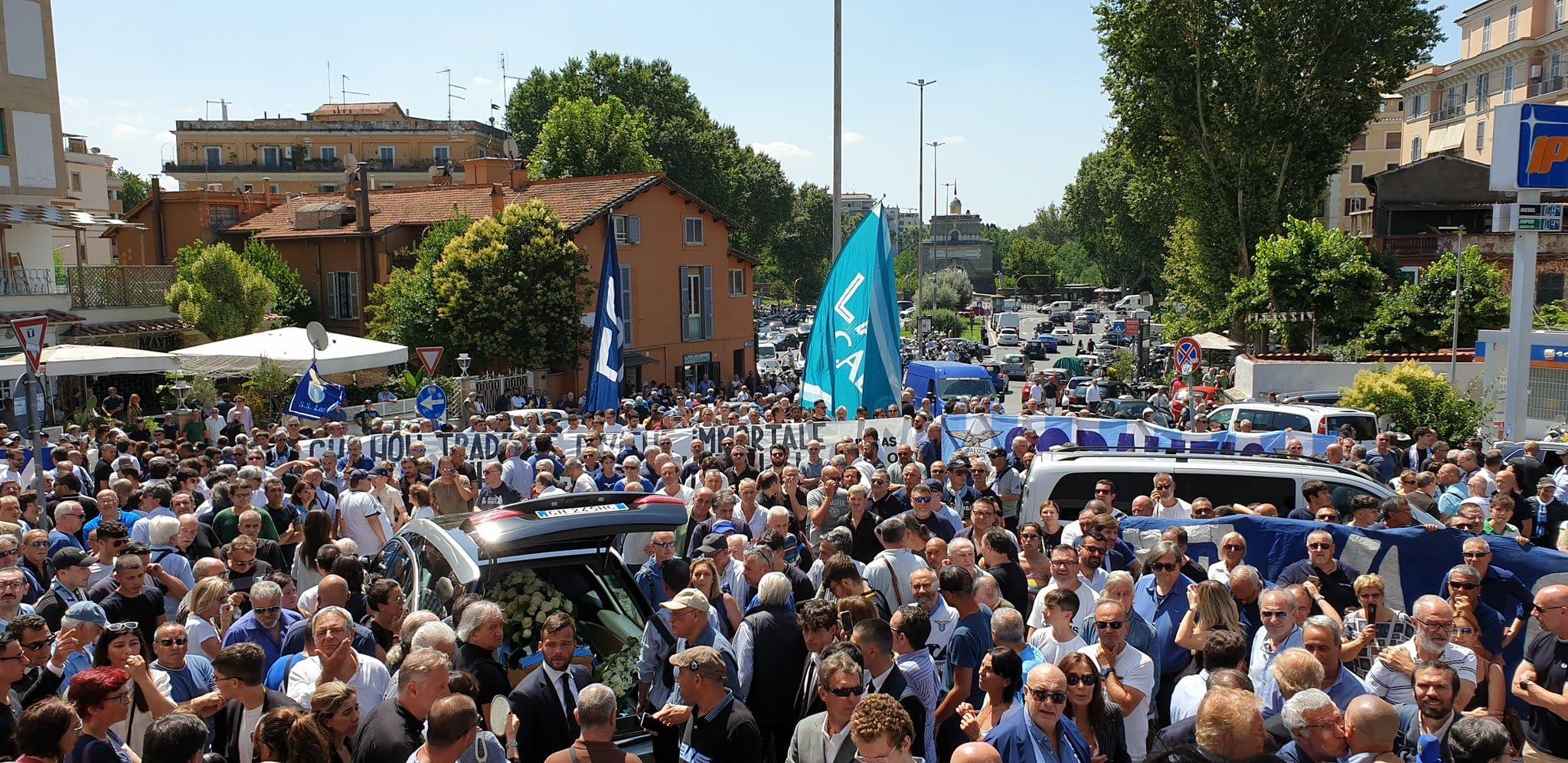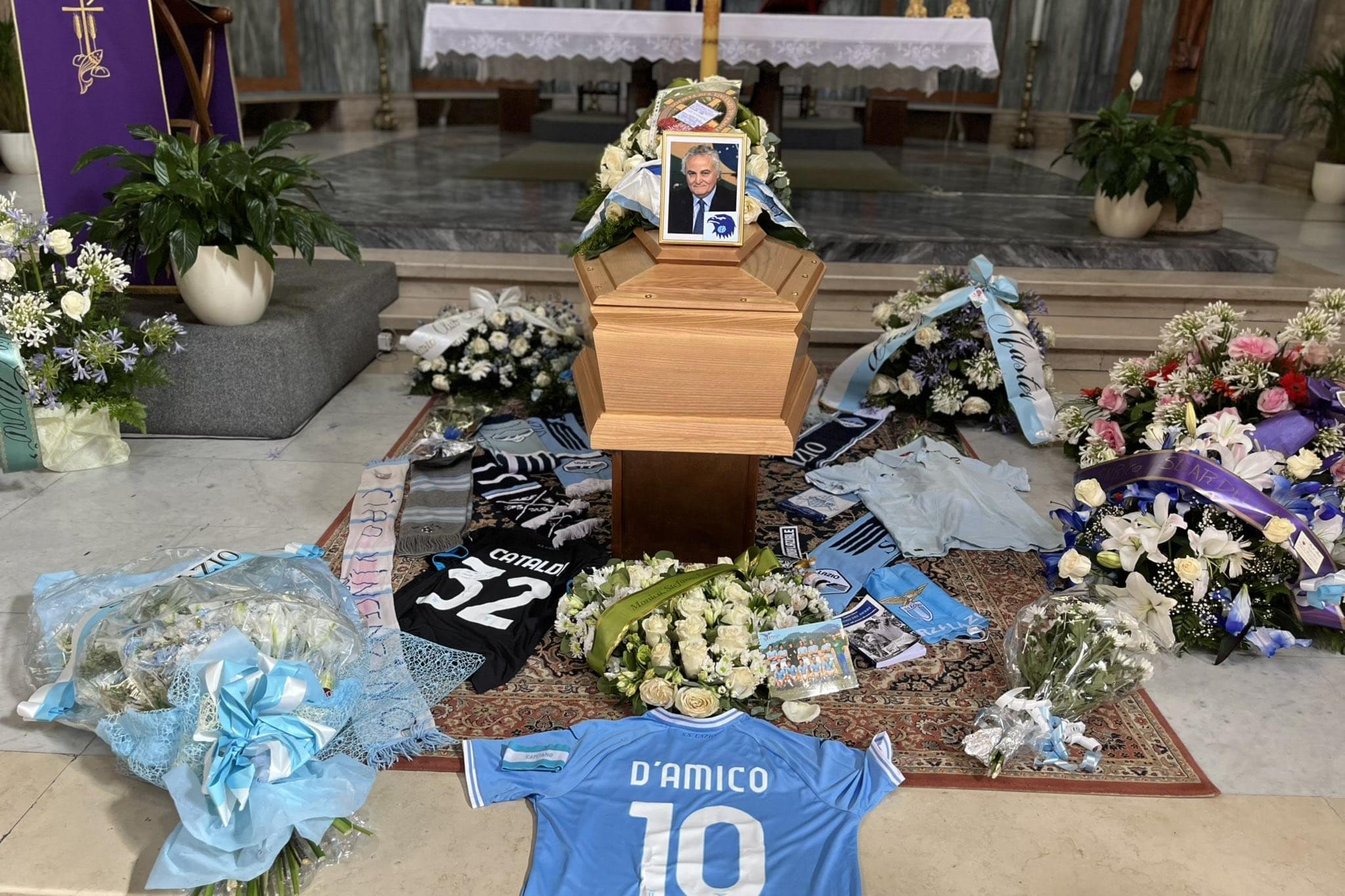PHOTO
Everyone was there to bid farewell to Vincenzino. His family, his old friends, his Lazio teammates and finally, his fans: more than one thousand people painted the Gran Madre di Dio Church with the Biancocelesti colours, the same place where D’amico mourned the loss of Bob Lovati, an important part of Lazio’s history, twelve years ago. Many famous faces from the world of football, former players, managers, being led at the front by FIGC president Gabriele Gravina, who paid homage to the deceased champion yesterday at the funeral chamber at Campidoglio. Lazio and FIGC banners donned the side of the coffin, with many wreaths of flowers amongst which was one from Roma, because Vincenzino was so loved by everybody. His fondness transcended colours and faith. The Ponte Milvio Piazza filled with Biancocelesti scarves and banners, whilst someone handed out a card with the phrase: "I didn’t want to be a player, I wanted to be a Lazio player." And that is exactly what D’Amico was.


Icon, hero, legend. Those are the most common adjectives that have accompanied the departure of a great champion in recent days. It is true, but above all, he was a beautiful and pure soul, perhaps too much so for the unscrupulous world of football. When his career took off, donning the Lazio jersey, he was just 19 years old. He was the youngest and freshest of them all, catapulted into a group of ‘anarchists.’ A crazy team divided in two by the leaders and the proud characters, never willing to give in. The ‘puppy’ of the gang immediately became known as Vincenzino by everyone, a nickname that stuck with him till the end that in some ways did not do him justice. Because at just 19 years old, the young boy from Latina was already a great player: his maiden season in Serie A was marked by a goal against Bologna and the Scudetto; there were no other dreams. He was independent too: he never sided with one group or the other; he was friends with everyone and played simply for the pleasure of it, without chasing after rules and schemes. Maestrelli, in fact, did not give him a specific role; every game he told him "get on the pitch and play as you know how," relying not only on his class, but also on his unruliness. He was the crazy variable of the midfield.
As Gianni Rivera's star faded with age, Vincenzino inherited the title of Golden Boy. As much a genius as a rebel, he got where he wanted and lived as he wanted. That's what he always did: when he won the Scudetto; when he was sold to Torino because of Lazio's delicate financial situation, only to give it all up within a few months and return to his roots; when as a perfect captain he saved his team from the nightmare of Serie C. He was born to play, to have fun and to entertain, but not only on the field. For him, life was also a game.
Vincenzino had a disarming generosity. Never a bad word about anyone, never a controversy, with simply silence and a smile he borne the criticism and the difficulties. Only one thing mattered to him: Lazio. He lived his life to these ends, with the exuberance of an eternal Peter Pan. As the years passed, he never lost his desire to have fun and enjoy every minute, never leaving a moment behind. He treasured one maxim in life: "Don’t promise when you’re happy, don’t respond when you’re angry, don’t decide when you’re sad."
